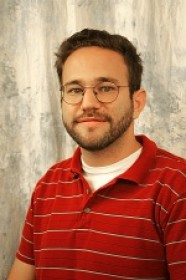
3:30 pm to 12:00 am
Event Location: NSH 1507
Abstract: Motion planning for complex systems such as legged robots and mobile manipulators has proven to be a difficult task due to the high dimensional configuration spaces that underly such systems, and also due to the variety of constraints which must be met at all times. One way to escape the so-called “curse of dimensionality”, or exponential explosion of search space, is to create a hierarchy of planners and controllers which at its highest level reasons about sequences of coarse behaviors operating on a simplified model of the system. This high level approach to robot behavior planning has been used successfully for several diverse robotic platforms, including footstep planning for the rough terrain quadruped described in this thesis.
High level planning, however, introduces significant tradeoffs. Because the planner considers a coarse approximation of reality, it is typically difficult—if not impossible—to directly optimize its performance with respect to a concrete objective in the real world. Furthermore, since different modules of the planning and control hierarchy reason about the system in varying granularity, care needs to be taken to ensure that the planner does not commit to actions at a coarse level of planning which are in fact infeasible in reality. This thesis describes broad strategies for addressing the challenges of high level planning for robotic systems, harnessing both numerical optimization and machine learning techniques in order to produce effective behaviors in real time. These frameworks and algorithms are demonstrated on the Boston Dynamics Inc. LittleDog quadruped robot in the context of rough terrain locomotion.
Committee:James Kuffner, Chair
Christopher G. Atkeson
J. Andrew Bagnell
Jean-Claude Latombe, Stanford University
